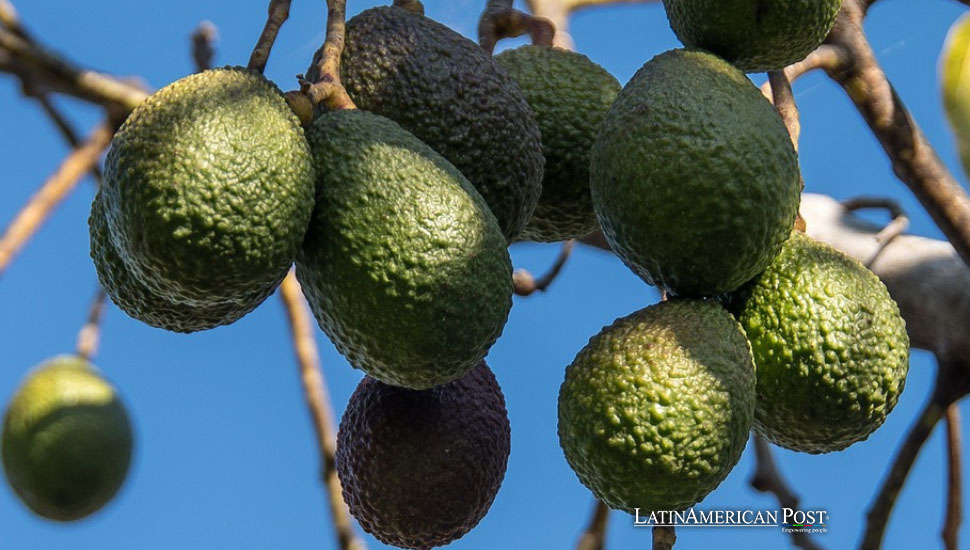Costa Rica and Colombia Promote Sustainable Coffee and Avocado Farming

The Costa Rican Ministry of Foreign Affairs announced on Wednesday that Costa Rica and Colombia are spearheading a project to promote sustainable farming among coffee and avocado producers by strengthening bio-inputs and reducing agrochemicals.
The Costa Rican Ministry of Foreign Affairs announced that Costa Rica and Colombia are spearheading a project to promote sustainable farming among coffee and avocado producers by strengthening bio-inputs and reducing agrochemicals.
This triangular cooperation initiative is funded by the Adelante 2 Fund from the European Union-Costa Rica-Latin America and the Caribbean Triangular Cooperation Program. It aims to benefit producers in Costa Rica’s Central-Western and Colombia’s Eastern Antioquia regions.
“We are very committed to promoting the development of the capabilities of extension workers and producers in the regulation and research of bio-inputs. We believe this is the right path to join efforts and aspire to sustainable agriculture. We need to strengthen the use of bio-inputs and biocontrol agents and consider soil health as a living entity,” said Costa Rica’s Minister of Agriculture and Livestock, Víctor Carvajal.
Authorities reported that Tuesday’s project launch and the first workshop were held. Seventy producers from the Central-Western region of Costa Rica participated, sharing experiences about using and producing bio-inputs currently in use. Following the workshop, which will also be replicated in Colombia, laboratory analyses of the bio-inputs will be conducted, and best practices will be exchanged between the two countries.
Promoting Sustainable Agricultural Practices
Experts highlight that using bio-inputs benefits soil health, food quality, human health, and the reduction of greenhouse gases. The triangular cooperation project aims to enhance the capacity for technology transfer in sustainable agricultural production systems using high-quality bio-inputs based on rigorous technical and scientific criteria.
A Collaborative Effort: Costa Rica, Colombia, and European Union Unite for Sustainable AgricultureThe project is led by the National Center for Biotechnological Innovations (Cenibiot-CENAT), the Costa Rican Ministry of Agriculture and Livestock, the Corporation for Biological Research (Colombia), and the Swedish University of Agricultural Sciences (SLU).
The Adelante 2 Fund is a contribution of 1.2 million euros from the European Union (EU), channeled through the Spanish Agency for International Development Cooperation (AECID), with coordination from Costa Rica’s Ministry of Foreign Affairs and Worship and the Ministry of National Planning and Economic Policy.
This initiative reflects a growing recognition of the importance of sustainable agriculture in Latin America, a region where traditional farming practices often rely heavily on chemical inputs. The project aims to reduce environmental impact, improve crop resilience, and significantly enhance farmers’ livelihoods by promoting bio-inputs. This positive change is a reason for hope and optimism in the agricultural sector.
The Impact of Bio-Inputs on Agriculture
Using bio-inputs, including natural fertilizers and pest control agents derived from organic materials, has numerous benefits. These inputs help maintain soil fertility, reduce dependency on synthetic chemicals, and lower production costs. Additionally, bio-inputs support biodiversity and ecosystem health, making them a crucial component of sustainable agriculture.
Farmers participating in the project have noted improved soil health and crop yields. By reducing the use of agrochemicals, they also mitigate the environmental and health risks associated with chemical residues. This transition to more sustainable practices is essential for long-term agricultural productivity and environmental conservation.
The project’s approach to knowledge sharing and capacity building is particularly significant. Workshops and training sessions provide farmers with the tools and information to implement sustainable practices effectively. The collaboration between Costa Rica and Colombia allows for exchanging experiences and best practices, fostering a regional network of sustainable farming advocates. This emphasis on knowledge sharing is enlightening and informs us about the power of collaboration in promoting sustainable agriculture.
Strengthening Regional Cooperation
Latin America’s agricultural sector faces numerous challenges, including climate change, soil degradation, and market volatility. Projects like this one are crucial in addressing these issues by promoting sustainable practices that enhance resilience and adaptability. The cooperation between Costa Rica and Colombia serves as a model for other countries in the region, demonstrating the benefits of collaborative efforts in achieving sustainable development goals.
The involvement of European partners adds an essential dimension to the project, bringing expertise, funding, and a global perspective on sustainable agriculture. This international cooperation underscores the shared responsibility of ensuring food security and environmental sustainability, and it’s a testament to the value of collaboration in addressing global challenges. We appreciate the contribution of our European partners and respect their commitment to sustainable development.
The sustainable farming initiative launched by Costa Rica and Colombia represents a significant step towards transforming agricultural practices in Latin America. By focusing on bio-inputs and reducing agrochemicals, the project not only improves the environmental footprint of farming but also supports the livelihoods of coffee and avocado producers. As the project progresses, it will provide valuable lessons and insights that can be applied across the region, contributing to a more sustainable and resilient agricultural sector.
Also read: Roche Opens $100 Million Campus in Costa Rica to Boost Health Solutions
The commitment of the participating countries and the support from international partners highlight the potential of triangular cooperation in addressing global challenges. By working together, countries can leverage their strengths and resources to create lasting positive impacts on agriculture and the environment. This project is a testament to the power of collaboration and innovation in achieving sustainable development.




